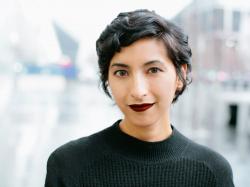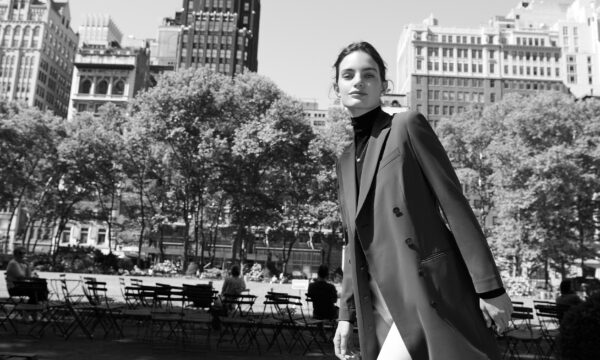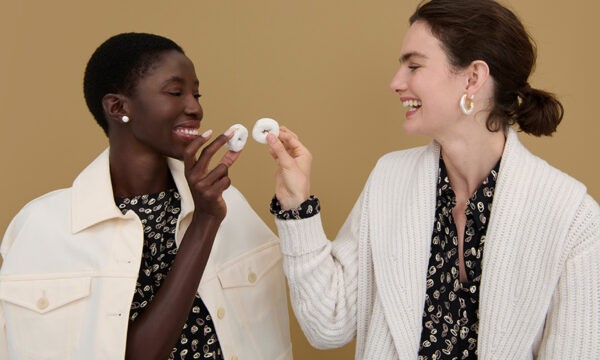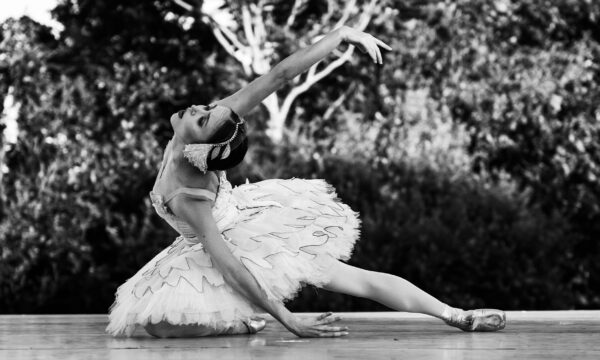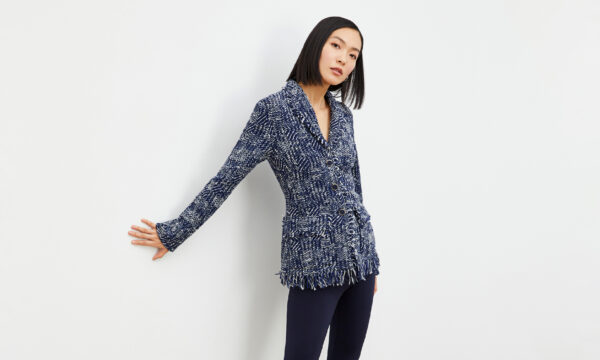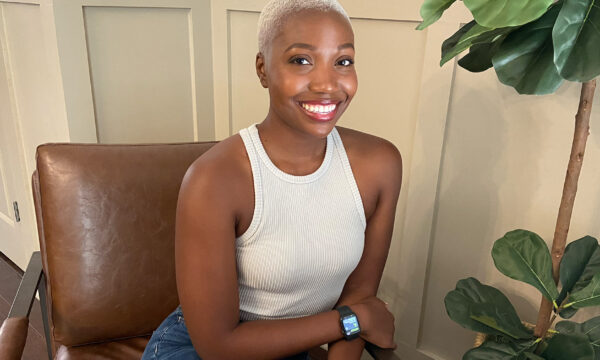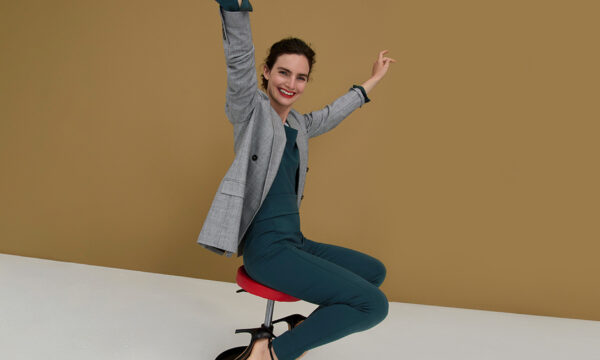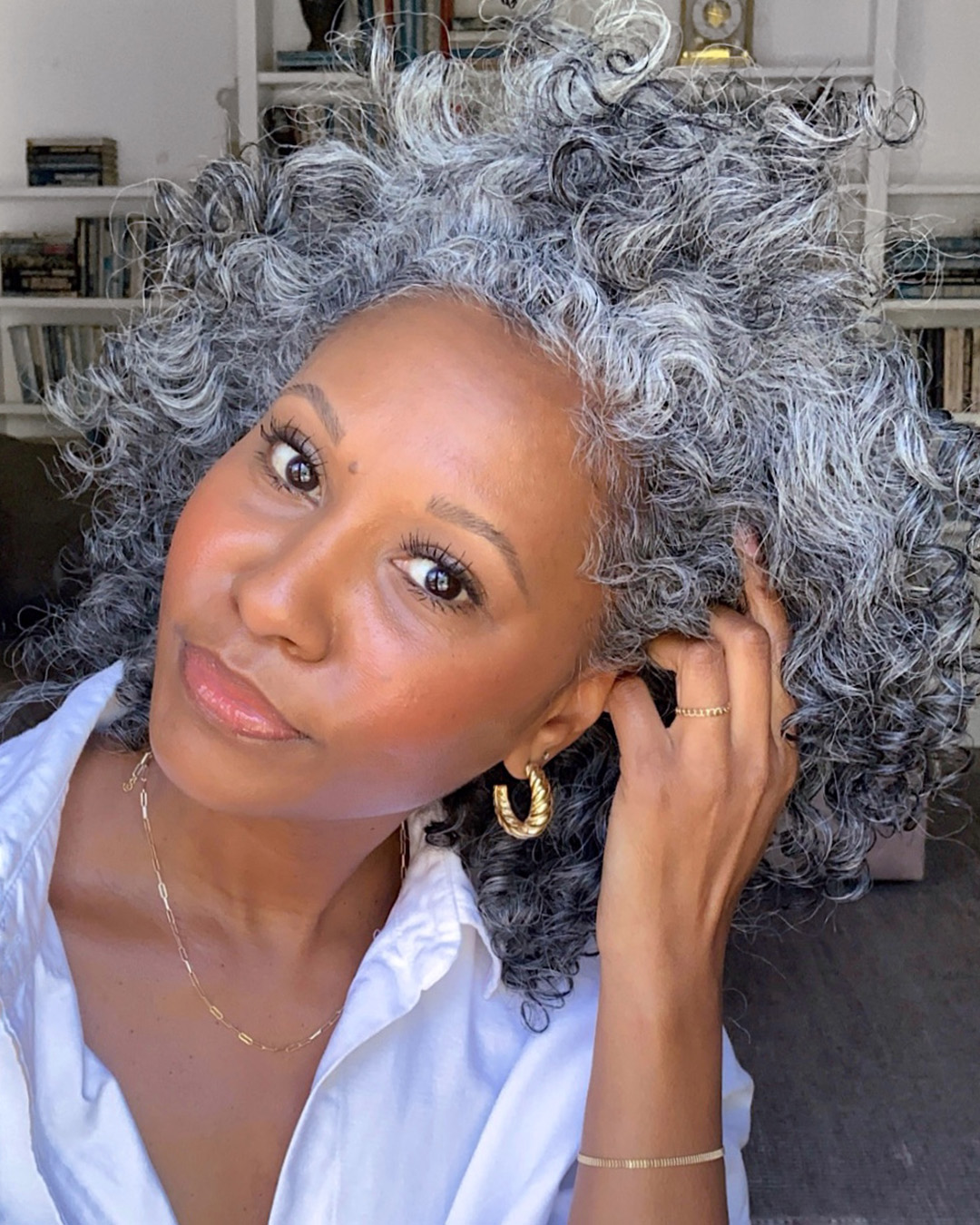
Tennille Murphy, 44, content creator and model.
Want more M Dash?
Sign up for our weekly newsletter.
Thank you!
For many women, the arrival of their first gray hairs presents a major choice: to color, or not to color? And while many choose to conceal their roots, either DIY-ing boxed hair color or opting for a standing appointment at a salon, it can be a huge expense in terms of time, money, or both.
But the alternative—embracing grays—entails some calculation, especially for women in the workplace. “If you try to get out in front of career-impacting cosmetic decisions as a woman, good luck to you,” says Senofer Mendoza, 41, founder of Mendoza Ventures, a venture capital firm in Boston, MA and San Francisco, CA. “It’s impossible for us to predict what will charm or anger everyone else.”
Despite strides made, women’s appearances still play an outsized role at the office, sitting at that delightful intersection of ageism, sexism, and society’s arbitrary beauty standards. And the stigma around going gray, in particular, is one of those double standards that men simply don’t have to worry about. (See: George Clooney.)
Still, research indicates that going gray as a working woman can have its (admittedly complicated) advantages. For one, a 2022 study published in Journal of Women and Aging determined that in spite of the drawbacks—primarily, being perceived as “incompetent” as a result of entrenched ageism in the office—women who chose to embrace their gray hair felt more authentic.
Rhoshan Pharmaceuticals CEO Hitha Palepu, 38, who began getting grays as a teen and stopped coloring her hair a few years ago, can vouch for that sense of authenticity—as well as the self-esteem boost that comes with it. “I feel far more confident in how I look with my gray hair than I did with my black hair,” she says. “It feels very ‘me,’ and choosing to adhere to my own beauty standards versus the expectation that women color their grays makes me feel powerful—like, because I was able to buck this tradition, I can do it in other areas of my life and my job.”

Hitha Palepu, 38, CEO of Rhoshan Pharmaceuticals.
The same goes for Nicole Irvine, 39, who’s a virtual assistant and notary signing agent in Magnolia, TX. These days, “I can’t imagine being judged for my hair color instead of how well I do my job,” she says. “Going gray has given me this new sort of confidence.”
The study’s idea that women would be perceived as less competent due to ageism doesn’t apply to all work sectors, either, since age can in many ways be a sign of authority. “I was actually curious if [going gray] would discourage some of the dismissiveness that comes with being a woman of color in high tech,” says Mekka Williams, 48, who first began graying at 19 and is a principal engineer at a tech company in North Carolina. “In my field, experience is actually a bonus, and people do assume experience with age.”
Similarly, that made it easy for Palepu to shift to gray hair as well. “There are very few senior leaders in the life-sciences industry that are young women of color, and being taken seriously is a significant challenge because of our age, gender, and race,” she says. “If my gray hair helped me look older, I figured it could only be to my advantage—if there was any impact at all.”
For others, meanwhile, it felt like the judgment was inevitable just on the basis of being a woman, especially when working in male-dominated industries. “The statistics for women in venture capital are abysmal—1% of my peers are women, so I already stand out in a lot of rooms,” says Mendoza. “When you’re in an under-represented population, people will find something to judge you by to reinforce themselves. If it’s not my hair, it will be something else.” So—why not go for it?
Embracing grays can also serve as an example for colleagues and employees. “I find that a lot of my personal decisions impact our culture, [and] how I dress as a member of the leadership team sets a tone,” Mendoza says. “I would like to think I am sending the message that people can be themselves here.”

Senofer Mendoza, 41, founder of Mendoza Ventures. Photo by Marcy Rolerson.
It also doesn’t hurt that silver hair is now considered cool, with gray hair becoming a trend among women of all ages in recent years. That’s made it easier for others to make the leap. “When I decided to stop coloring my hair, my grays were plentiful enough that it looked like I just had gray highlights as a style choice. That made the transition a bit easier,” says Palepu.
And for Black women in particular, it can be a surprisingly easy decision, since they tend to stand out in many offices. “As a black woman with natural hair, I am very used to hair transitions causing a stir amongst colleagues,” Williams says; this, of course, factored into her comfort level with gray hair.
Tennille Murphy, 44, on the other hand, grew up fighting her natural hair texture, only making peace with it in her 20s—which was, incidentally, about the same time her first grays began to pop up. But her longtime dislike of (and eventual truce with) her hair texture led to a timely shift in her attitude. “Having to come to terms with the texture of my hair versus my hair’s changing color… it doesn’t even compare,” she says.
Plus, Murphy adds, “I think anyone who wears their hair naturally has a confidence that they already have to hold onto, because they’re probably going to be the only one at work with that hair,” she says. “I’ve always been in the category of an ‘only one.’ So, the fact that my hair was turning white really didn’t bother me at all.”
Even better? Murphy, who was previously a flight attendant and now works in digital marketing and as a content creator and model, managed to make a new career out of her gray hair. “I have met brands who say, ‘Oh, you’re always on our mood board when we’re launching a product and want you to be the beauty standard,” she says. “It knocks me over when I hear comments like that.”
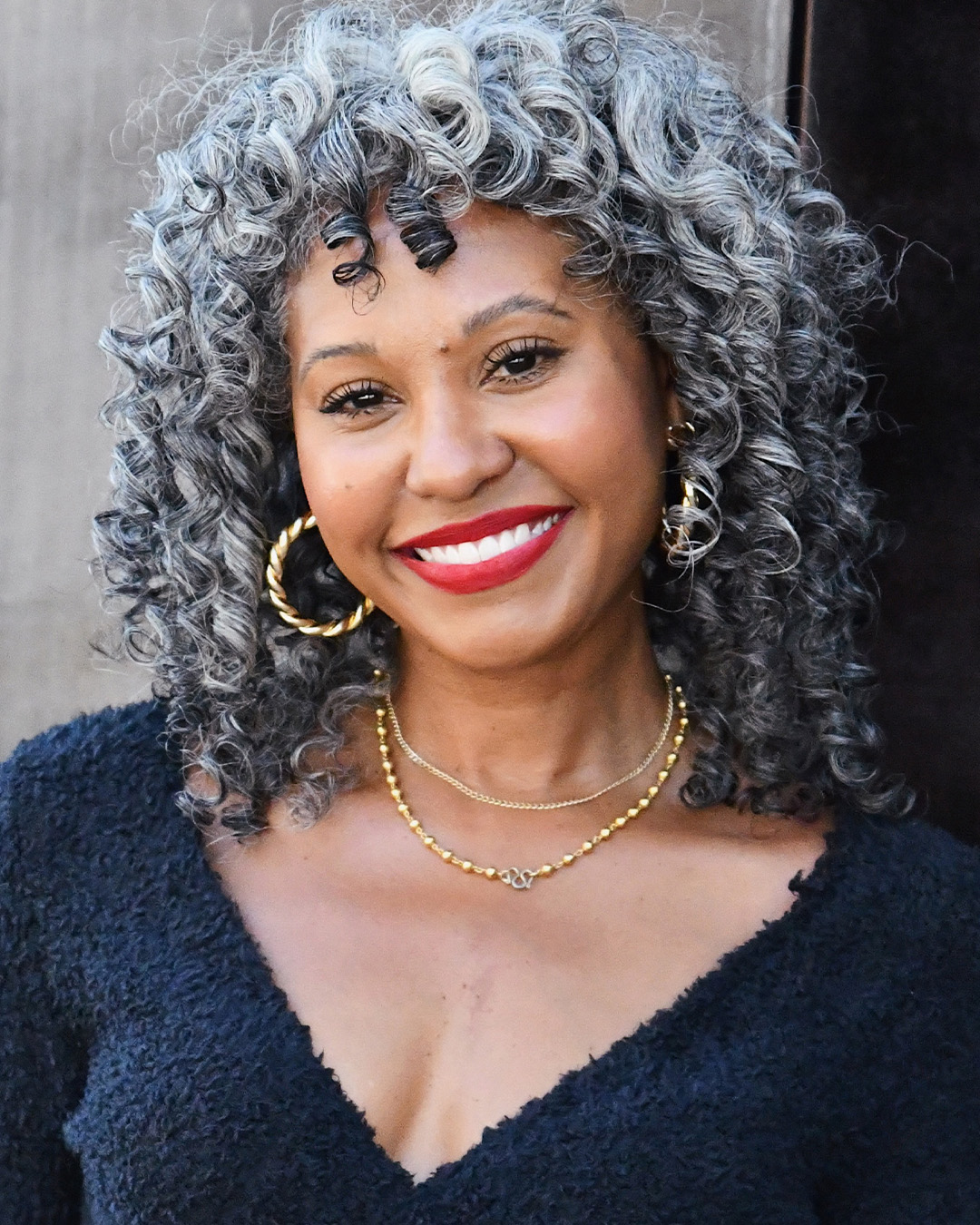
Tennille Murphy, 44, content creator and model.
Despite this, many working women have found that people do still comment on their appearances; it’s a tale as old as time. There’s both good and bad among them. “My coworkers told me I look beautiful—and they see me every day, so they would know,” Mendoza says.
Meanwhile, one colleague referred to Williams as a “Lady Albert Einstein,” though she didn’t see that as an insult. Others could be flat-out condescending. “I had an older male coworker say to me ‘You know…you can color your hair if you’re worried about those grays’,” says Irvine. (She responded in kind by recommending Rogaine, to which he replied, “Touché.”)
It’s proof that despite the progress, there’s still a ton of room for improvement. “I think women embracing their gray hair challenges beauty standards, and we as a society are not ready for this redefinition,” Williams says. “This unfortunately still influences, whether consciously or subconsciously, whose image is ‘eligible’ for public consumption.”
That said, everyone I spoke with who’s made the leap is glad to have done it; in fact, they all cited “Not doing it sooner” as the one thing they regret. “I worked so hard to try to ‘fit’ what people may expect,” Mendoza says. “Once you let that go, you get to hold yourself accountable for your own accomplishments, and that is an awesome feeling.”
In the end, it’s a matter of trade-offs. As Williams puts it: “I can’t say how I’d feel if going gray had influenced my career to its detriment. [But] I would like to believe that the love I continually develop for myself through self-acceptance is worth any consequence.”
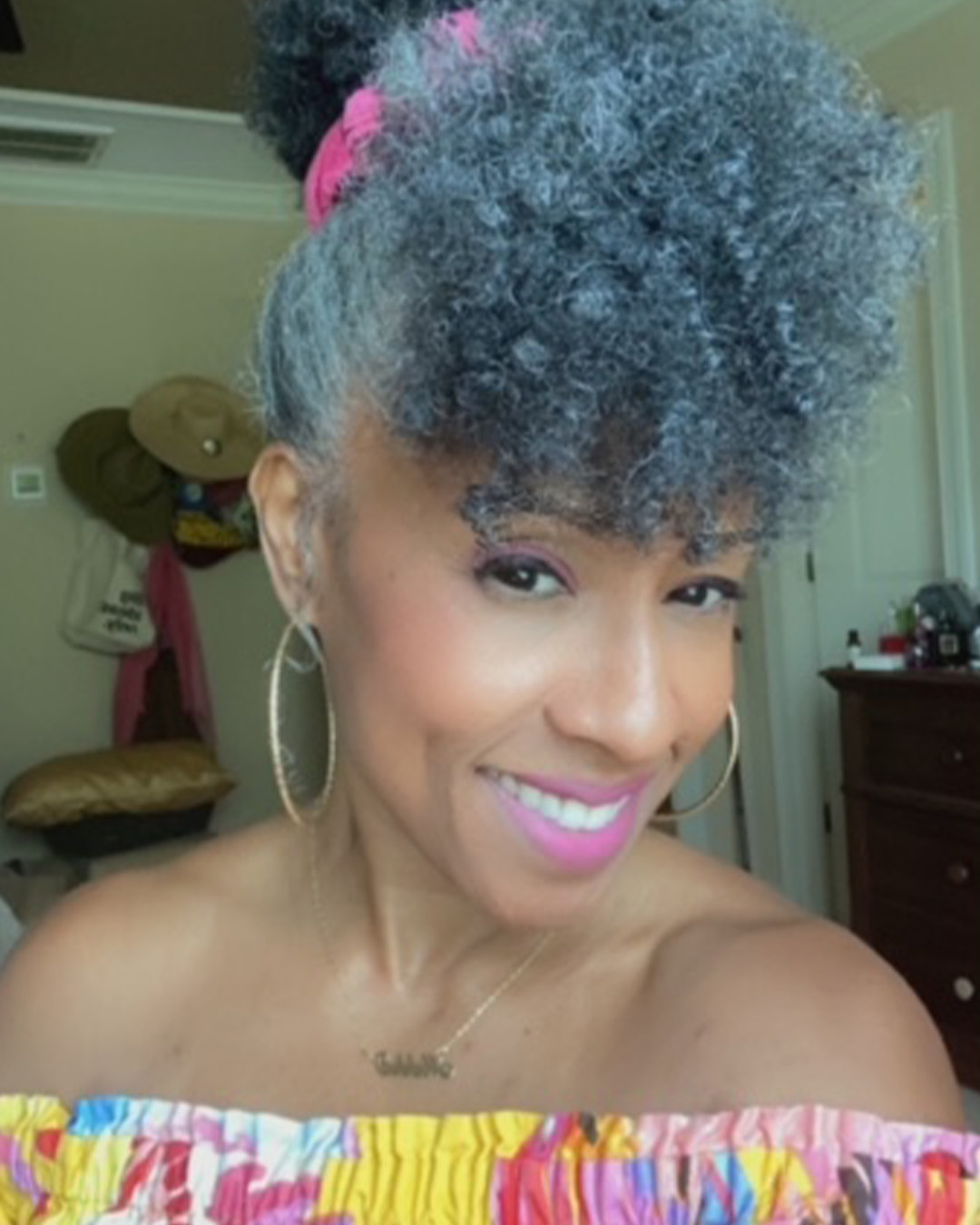
Mekka Williams, 48, Principal Engineer at a tech company in North Carolina.





